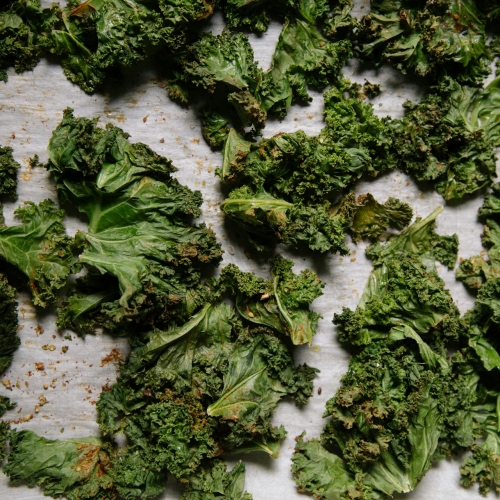Sourcing
Ingredients you will need:
Fresh kale leaves (any variety)
Olive oil
Salt
Optional additional seasonings (such as garlic powder, nutritional yeast, chilli powder, paprika, or lemon zest, etc.)
Selling
Kale chips are often sold at health, "natural," vegan, and other premium food shops. I was once in a shop that was using a consumer dehydrator to make kale chips, and he had a dedicated person employed to make them. This is possible due to the premium it sells for. At Woolworths, it is currently close to R1 per gram (R24 for 25g).
Business Model
There are two ways to make kale chips: dehydration and oven.
Dehydration
Using a dehydrator to make kale chips is another popular method, and it offers some differences compared to baking them in the oven. Here's how you can make kale chips using a dehydrator:
Ingredients and preparation steps for kale chips using a dehydrator are essentially the same as the oven method mentioned earlier. However, instead of baking the kale chips in the oven, you'll use a food dehydrator:
Prepare the kale leaves: Wash, dry, and remove the tough stems from the kale leaves, then tear them into bite-sized pieces.
Season the kale: Toss the kale pieces with olive oil, salt, and any additional seasonings of your choice in a large bowl until evenly coated.
Arrange on dehydrator trays: Lay the seasoned kale pieces in a single layer on the trays of your food dehydrator. Make sure the pieces are not overlapping to ensure even drying.
Dehydrate the kale: Place the trays in the dehydrator and let the kale chips dry for about 4 to 6 hours, or until they are crisp and brittle. The drying time may vary depending on the thickness of the kale leaves and the humidity in your environment.
Check for doneness: Periodically check the kale chips during the drying process to ensure they are drying evenly and not becoming too browned.
Cool and store: Once the kale chips are fully dehydrated, remove them from the dehydrator and let them cool completely. They will continue to crisp up as they cool.
The main difference between using a dehydrator and baking in the oven is the method of drying. A dehydrator uses low, consistent heat to slowly remove moisture from the kale leaves, resulting in crispy chips without the need for high temperatures. This method can help preserve more nutrients in the kale and may produce slightly different texture and flavour compared to oven-baked kale chips.
Oven
Preheat your oven to around 150°C to 175°C. The exact temperature may vary depending on your oven, but a lower temperature helps prevent the kale from burning.
Wash the kale leaves thoroughly and dry them completely. Use a salad spinner or pat them dry with paper towels to remove excess moisture.
Remove the tough stems from the kale leaves and tear the leaves into bite-sized pieces. Discard the stems or save them for other recipes.
In a large bowl, toss the kale pieces with a small amount of olive oil. You want to lightly coat the leaves with oil but not drench them.
Sprinkle salt and any additional seasonings of your choice over the kale leaves. Mix well to ensure the leaves are evenly coated with oil and seasonings.
Arrange the seasoned kale leaves in a single layer on a baking sheet lined with parchment paper or a silicone baking mat. Make sure the leaves are not overlapping to ensure even baking.
Place the baking sheet in the preheated oven and bake the kale chips for about 10 to 15 minutes, or until they are crisp and the edges are slightly browned. Keep an eye on them to prevent burning, as kale chips can quickly go from perfectly crisp to burned.
Once the kale chips are done baking, remove them from the oven and let them cool on the baking sheet for a few minutes. They will continue to crisp up as they cool.
The chips are then packaged and sold in retail outlets (see Selling).

